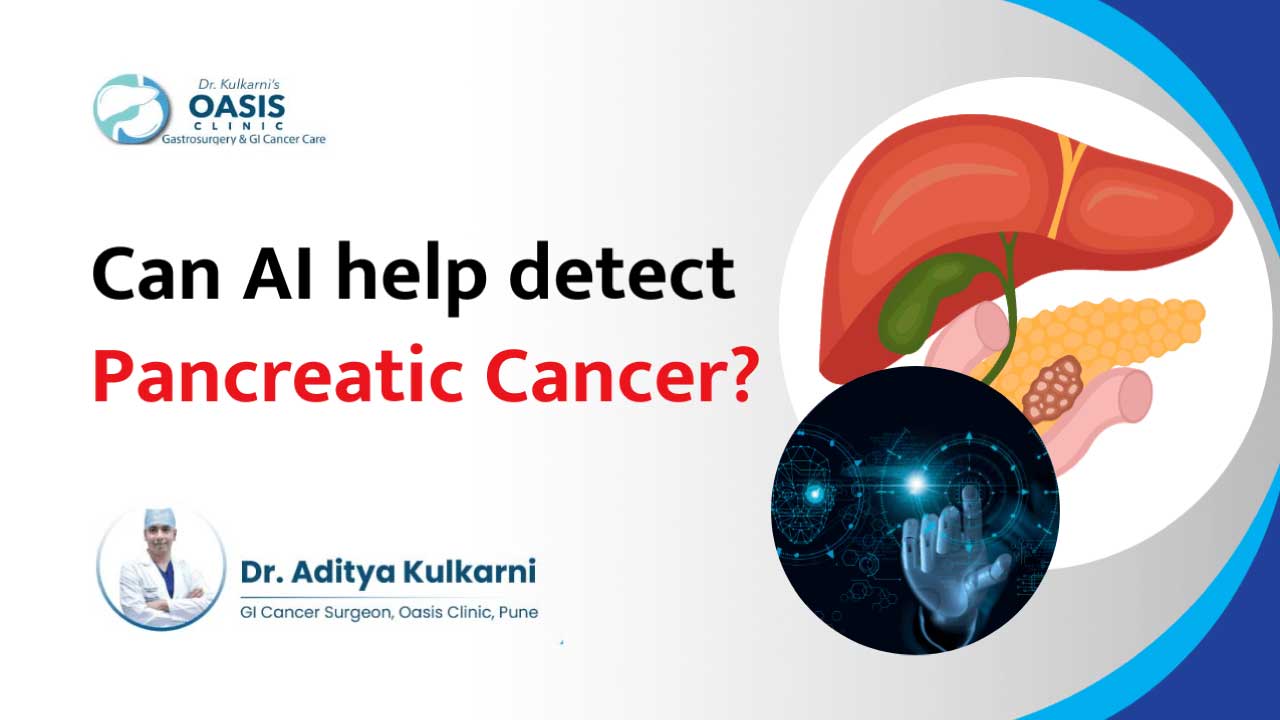Can AI Help Detect Pancreatic Cancer?
Pancreatic cancer is a complex and aggressive disease that often presents late, making early detection and diagnosis crucial for successful treatment. As artificial intelligence (AI) continues to advance and find its place in various medical applications, there’s growing interest in the potential role of AI in aiding the detection of pancreatic cancer. Let’s explore the challenges of detecting pancreatic cancer, how AI can help, and the future possibilities in this field.
Pancreatic Cancer: Detection Challenges
Pancreatic cancer is known for its subtle symptoms, which may include abdominal pain, unexplained weight loss, and jaundice. These symptoms often appear when the disease has advanced, making early detection difficult.
Currently, pancreatic cancer detection relies on imaging techniques such as computed tomography (CT) scans, magnetic resonance imaging (MRI), and endoscopic ultrasound (EUS).
However, these methods have limitations in differentiating between malignant and benign lesions or identifying early-stage tumors. As a result, early detection is essential for improving treatment outcomes and patient survival rates.

Role of Artificial Intelligence in Healthcare
Artificial intelligence plays a significant role in healthcare, with applications ranging from drug discovery to personalized medicine. AI algorithms can analyze data, identify patterns, and make predictions based on those patterns. In the context of pancreatic cancer detection, AI-based tools can potentially enhance the accuracy, speed, and efficiency of analyzing medical images and patient data.
Machine Learning and Deep Learning Approaches
Machine learning and deep learning algorithms are two AI approaches that can aid in detecting pancreatic cancer. Machine learning involves training algorithms to recognize patterns in data, while deep learning uses AI neural networks to copy the human brain’s learning process. By analyzing patient data and medical images, these algorithms can learn to identify early signs of pancreatic cancer and differentiate between malignant and benign lesions.
Benefits of AI in Pancreatic Cancer Detection
There are several advantages of using AI in pancreatic cancer detection:
- Improved accuracy: AI can be trained to identify subtle patterns in medical images which may be difficult for human eyes to detect. AI can lead to more accurate identification of early-stage tumors.
- Increased speed and efficiency: AI can quickly analyze large volumes of data, potentially reducing the time to reach a diagnosis.
- Reduced workload for Surgeons: AI can help alleviate the workload for radiologists and other healthcare professionals by automating some aspects of the diagnostic process.
- Better risk prediction and patient stratification: AI algorithms can potentially analyze multiple factors to predict the risk of developing pancreatic cancer, enabling better patient stratification and tailored screening strategies.

Challenges and Limitations
Despite the potential benefits, there are challenges and limitations associated with implementing AI in pancreatic cancer detection:
- Data quality: High-quality, annotated data is crucial for training AI algorithms. However, obtaining such data can be challenging, due to privacy concerns and the rarity of early-stage pancreatic cancer cases.
- Algorithm development: Developing accurate and reliable algorithms requires expertise in both AI and medical domains.
- Regulatory considerations: The use of AI in healthcare is subject to regulatory oversight, which can affect the development and deployment of AI-based diagnostic tools.
- Ethical concerns: Issues related to data privacy, informed consent, and algorithmic bias must be addressed to ensure the responsible use of AI in healthcare.
Current Research and Applications
Several recent studies and research projects focus on using AI for pancreatic cancer detection. For example, researchers at Johns Hopkins University have developed an AI algorithm capable of detecting pancreatic cancer in CT scans with a high degree of accuracy.
Similarly, a study published in the journal “Clinical Cancer Research” demonstrated the potential of a deep learning algorithm to identify early pancreatic cancer in endoscopic ultrasound images. Other projects are exploring the use of AI in analyzing patient data and identifying potential risk factors for pancreatic cancer.
Future Possibilities and Impact
As AI technologies advance, their potential impact on pancreatic cancer detection is promising. Earlier diagnoses could lead to improved patient outcomes and survival rates. Furthermore, AI could enable personalized treatment approaches by analyzing patient data and predicting treatment responses.
Wrapping up
While challenges remain, AI holds significant potential as a valuable tool in assisting with the early detection of pancreatic cancer. As research and development continue, we hope AI will play an essential role in improving patient outcomes and diagnosing and treating this challenging disease. By working together, patients, healthcare professionals, and AI researchers help unlock the full potential of artificial intelligence in the fight against pancreatic cancer.

Dr. Aditya Kulkarni
MS, DNB, FRCS, MCh (Surgical Gastroenterology & GI Oncology)
Dr. Aditya Kulkarni is a Consultant of Laparoscopic and Robotic Gastrointestinal, Hepato-biliary-pancreatic, and Cancer Surgeon at the Renowned Oasis Surgery Clinic Pune.
Book An Appointment
